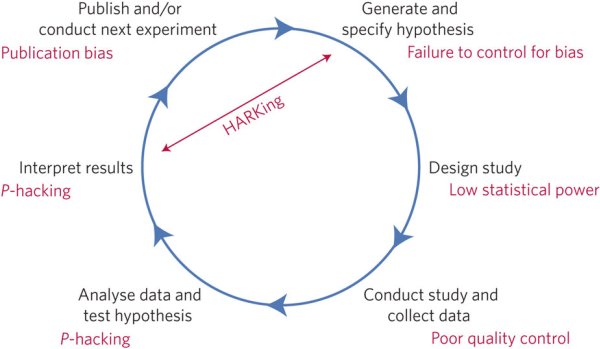Reproducible science is better science
‘Open’ is not an end result for research: it is a mechanism. A mechanism for improved transparency and accountability, for reproducibility and rigour, and efficiency and accelerated discovery.
A new article by Marcus Munafò and colleagues presents a manifesto for reproducible research that highlights this, and contains substantial important reading on this topic. Enjoy!
Abstract
Improving the reliability and efficiency of scientific research will increase the credibility of the published scientific literature and accelerate discovery. Here we argue for the adoption of measures to optimize key elements of the scientific process: methods, reporting and dissemination, reproducibility, evaluation and incentives. There is some evidence from both simulations and empirical studies supporting the likely effectiveness of these measures, but their broad adoption by researchers, institutions, funders and journals will require iterative evaluation and improvement. We discuss the goals of these measures, and how they can be implemented, in the hope that this will facilitate action toward improving the transparency, reproducibility and efficiency of scientific research.
